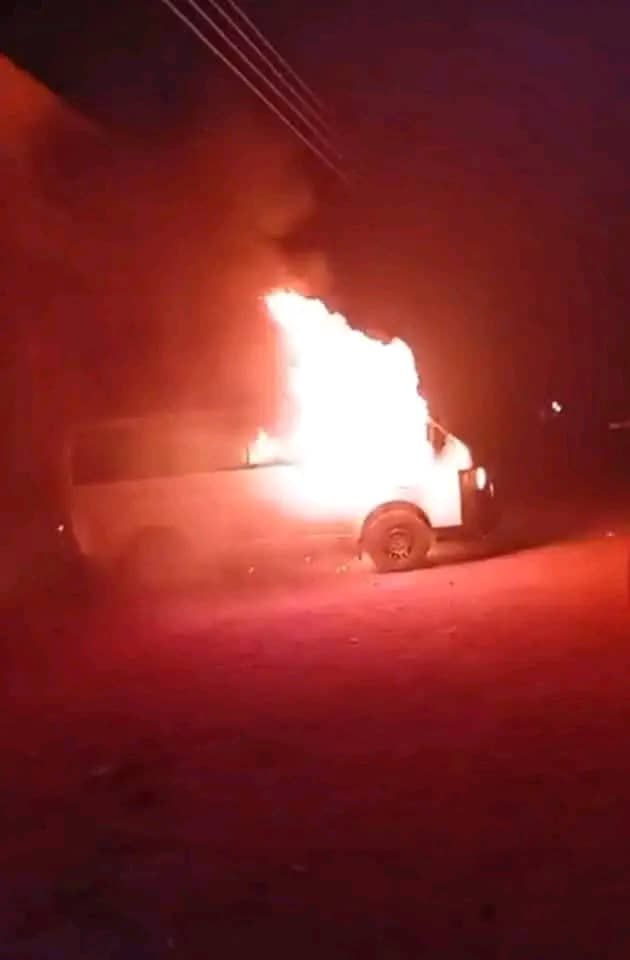By Burnett Munthali
The recent shooting of a Democratic Progressive Party (DPP) minibus in Mponela has triggered a storm of accusations and counter-accusations between the country’s two leading political parties, the DPP and the Malawi Congress Party (MCP).
The incident, which occurred under mysterious circumstances, has raised serious concerns over the state of political tolerance, security, and accountability in Malawi.
As the victims continue to recover from the traumatic events, and citizens demand justice, the Malawi Police Service (MPS) has chosen to remain conspicuously silent, further inflaming tensions and fueling suspicions of political shielding.

The DPP was quick to accuse operatives linked to the ruling MCP of orchestrating the attack, alleging that the shooting was part of a broader pattern of political intimidation and suppression.
This narrative has gained traction among DPP supporters, who argue that the MCP, emboldened by its incumbency, is resorting to violence to weaken the opposition ahead of the 2025 elections.
On the other hand, the MCP has flatly denied any involvement in the shooting, turning the spotlight back on the DPP by suggesting that the incident may be a false flag operation designed to generate sympathy and discredit the government.
This tit-for-tat exchange has done little to clarify what actually happened in Mponela but has instead laid bare the growing mistrust and political polarization that continue to plague Malawi’s fragile democracy.
The silence of the Malawi Police Service is especially alarming, given its constitutional mandate to protect all citizens and to uphold the rule of law without fear or favour.
By failing to issue even a preliminary report or acknowledge the incident publicly, the police risk losing credibility and appearing complicit, either through negligence or calculated inaction.
This reluctance to act or communicate invites speculation that elements within the law enforcement apparatus may be beholden to political interests rather than the national interest.
In a democratic society, the impartiality and responsiveness of state institutions like the police are critical, especially when politically charged crimes occur.
The failure to act swiftly in this case undermines not only public confidence in the police but also faith in the broader justice system.
It also emboldens perpetrators of violence, who may feel protected by political connections or the inefficiencies of the justice system.
The incident has revived painful memories of previous political clashes and unresolved crimes in Malawi’s recent history, where justice was delayed or denied altogether.
It also calls into question the government’s stated commitment to peace, inclusivity, and the rule of law.
Citizens are left asking whether their safety is guaranteed and whether political expression can still occur without fear of violent retaliation.
Civil society groups and the international community are likely to watch closely how this case develops, as it serves as a barometer for Malawi’s political maturity and institutional strength.
The government, if sincere about its anti-violence and pro-democracy agenda, must instruct the police to investigate the matter transparently and bring the perpetrators to book, regardless of their political affiliation.
Likewise, the DPP must exercise restraint and avoid politicizing the tragedy in ways that could incite further unrest or prejudice the investigation.
At the heart of the matter is the need for truth, accountability, and a depoliticized justice process that treats victims with dignity and citizens with respect.
Until this is done, the specter of the Mponela shooting will continue to haunt the nation and deepen the divisions that threaten to tear Malawi’s social fabric apart.
This is not just about one incident; it is about whether Malawi can rise above partisanship and commit to building a safe and just society for all.
What happened in Mponela must be seen as a wake-up call, not just for the police and political parties, but for every Malawian who believes in democracy, peace, and justice.
Only through unity, transparency, and firm institutional action can the nation hope to prevent future tragedies and ensure that politics never again becomes a trigger for violence.


